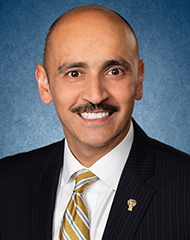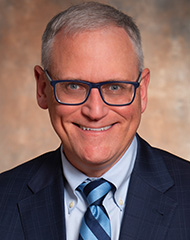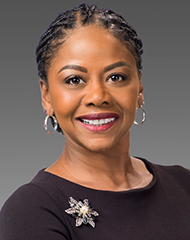YOUNGSTOWN, Ohio – Efforts to close the homeownership gap between Whites and Blacks began with the Fair Housing Act of 1968 and continue today.
The Community Reinvestment Act enacted by Congress in 1977 was designed to ensure financial institutions meet the credit needs of people with low to moderate incomes.
And while the rate at which Blacks are denied home loans is declining, Black homeowners who applied to access mortgage equity withdrawal products were rejected at nearly double the rate of White homeowners, 23% to 44%, according to a November study by the Philadelphia Federal Reserve Bank. The rejection rates for Hispanic and Asian homeowners were 32% and 30%, respectively.
So what efforts are local banks taking to close gaps between those who do and do not obtain financing for a home, project or purchase, and other banking opportunities? The Business Journal recently spoke with several local bank representatives about their company’s DEI (Diversity, Equity and Inclusion) policies and programs.
Farmers National Bank
Juan Santiago, vice president and CRA engagement leader for Farmers National Bank, says while he has not personally seen a situation where someone was denied a loan based on race or religion, in his 20 years in banking, he knows it happens, which has led to his involvement in creating programs to level the playing field.

Santiago helped to create the Farmers affordable housing initiative, which helps to remove barriers for low- to moderate-income individuals by providing down payment assistance with closing costs and removing the private mortgage insurance for those without a 20% down payment. Provided a prospective homebuyer has enough credit, he can get into a home for as little as a $500 down payment, Santiago says.
He knows there are residents who came from other countries where buying on credit is frowned upon and believe in having no debt. But if those people have a history of making payments on time for rent, car insurance or utilities, Farmers takes that into account when determining their eligibility for a home loan. “Because the standards are a little bit different, it’s tough to get unsecured debt or home equity sometimes,” Santiago says.
Farmers also helps small-business owners fulfill their dreams, Santiago continues. The bank partnered with others to support the efforts of the Youngstown Business Incubator through the Minority Business Assistance Center, investing in minority business owners by funding education and other support.
In addition, Farmers helps organizations and nonprofits that work with low- to moderate-income residents get the seed money they need to launch a project, especially when other funding sources are set up to reimburse them after the money is spent.
Whether through monetary assistance, employees donating their time at food banks or soup kitchens or by sitting on a nonprofit board, Santiago says it’s important to help and give back to the community.
“People say you know where people’s priorities are at when you look at their checkbook and you look at their calendars,” says Santiago. “So, we try to demonstrate that by what we do in giving in both of those areas.”
Consumers National Bank
Consumers National Bank recently developed a community difference mortgage home program that targets those in a low- to moderate-income census tract, with a possible 100% financing, according to Ralph Lober, president and CEO of the bank.

The program helps to make communities more stable, ensuring that the majority of homes remain privately owned instead of becoming rentals. “Once they tip too far into all-rental housing, then it is hard to get it back,” Lober says. “That program has been very, very successful for us.”
Lober says Consumers markets to everyone, blindly making credit decisions and promoting fair lending across its markets, including many very small communities that would otherwise be unserved or underserved.
With branches from southern Jefferson County north to Fairlawn, Lober says the hiring practices of his bank reflect the communities it serves. Plus, Consumers strives to have a diverse group of people included in the various operations of the bank.
“You can have diverse hiring and not be inclusive in your operation practices, Lober says. “Both are critically important.”
Premier Bank
Gary Small, president and CEO of Premier Bank, says 2023 will probably be the bank’s best year in CRA lending when it comes to loan origination numbers and total dollars lent. He expects that trend to continue in 2024, despite the mortgage market being “tamped down.”

Small says Premier is focused on all of its markets statewide, making certain it is taking more applications and closing more loans.
When it comes to hiring, Small says Premier improved practices in 2023, increasing the percentage of persons with diverse backgrounds.
“[In 2022] we had a great flow of applicants but we did not seem to be hiring at the same percentage that we were getting the applicant flow,” Small says. “We feel very good that this year we got the same kind of good applicant flow. But we got them in the door as well.”
Small credits the Premier human resources team with bringing together people from the various parts of the company to challenge it and shape solutions.
“It is very top-of-mind and it’s a funded effort and so forth,” says Small. “It doesn’t happen by accident.”
Finally, Small says Premier has made a seven-figure commitment to investing in Minority Depository Institutions, which focus solely on lending in predominantly minority areas.
First National Bank
The manager of diversity and inclusion at First National Bank, Cassy Cooper, says her company strives to provide access to a variety of banking services, including overdraft fee-free deposit products and a credit card meant to help someone establish or repair his credit.

Through third-party partnerships, First National Bank has nearly doubled its ATM network since 2021, thereby providing more access in low- to moderate-income and majority-minority communities.
In addition, the bank strives to invest in historically underserved communities and promote economic growth, including projects such as its partnership with Oh Wow! in Youngstown.
First National Bank provides its financial insights education program on kiosks in its branches, as well as through presentations.
And it strives to build a diverse workforce, Cooper says, seeking talent that reflects the diversity of customers and communities it serves.
In addition, the company partners its recruiting efforts with historically Black colleges and universities and offers mentoring and leadership development initiatives.
PNC Bank
PNC Bank launched another 11 virtual and market-based Employee Business Resource Group chapters in 2022 to cultivate a diverse and inclusive workforce. In addition, more than 2,600 PNC employees participated in a voluntary diversity and inclusion-mentoring program.

PNC also launched a four-year $88 billion PNC Community Benefits Plan to bolster economic opportunities for low- and moderate-income individuals, communities and people of color, according to Ted Schmidt, regional president, citing the bank’s DEI report.
In the first year of the program, PNC deployed $35.1 billion in loans, investments and other financial support, according to the bank’s Corporate Responsibility report for 2022.
In 2022, PNC launched the Minority Business Development Group with the intent of delivering products, solutions, expertise and resources focused on advancing minority-owned businesses. The program includes voluntary employee advocacy training.
